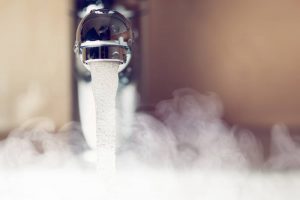Houston Car Accident Lawyers > Articles > Injuries > What You Need to Know Hot Water Burns in Children
What You Need to Know Hot Water Burns in Children

Scalding Water Burns & Children
Hot water scalding burns can be both traumatic and life-altering for children. According to the Centers for Disease Control and Prevention (CDC), scalds account for one-third of all burn injuries among young children each year, with most occurring at home.
If your child has been injured in an accident, you should contact medical assistance immediately.
 This blog post will discuss the legal implications for hot water scalding burns on children and what lawyers need to know about this topic.
This blog post will discuss the legal implications for hot water scalding burns on children and what lawyers need to know about this topic.
Common Causes of Hot Water Scalding Burns on Children
Hot water scalding burns are caused by contact with hot liquid or steam, resulting in a third-degree burn, which is the most severe type of burn injury.
Common causes of hot water scalding burns include improper temperature settings on hot water heaters, defective stovetop kettles or pots, and spilled coffee or tea that is too hot.
In addition, many young children suffer these types of injuries when they are left alone in a bathtub with the hot water running.
Other Childhood Injuries
- Children Hit by Cars
- Children injured when sitting in the front seat.
Legal Implications
When it comes to legal implications involving hot water scalding burns on children, there are several factors that attorneys need to consider.
In some cases, it may be possible to file a lawsuit against the manufacturer of the product that caused the injury if it can be proven that the product was defective or malfunctioned due to improper design or construction. Additionally, landlords may be held liable if they fail to maintain safe temperatures on their property’s hot water heater systems.
Furthermore, parents may face criminal charges if it can be shown that their neglect led to an injury from hot water scalding burns.
Product Liability Laws
It is important for lawyers who are handling cases involving product liability laws related to hot water scalding burns in children to understand how these laws work in order to maximize compensation for their clients.
These cases must typically prove either negligence (failing to use reasonable care) or strict liability (proving that a defect existed when an injury occurred). Product liability laws exist at both state and federal levels; therefore, lawyers must also understand the nuances between state and federal law when building their case strategies.
If Your Child Has Been Burned
At its core, a successful lawsuit related to a child’s hot water scalding burn requires proving negligence or strict liability based on current product safety standards as established by federal and state law.
Although these cases can be complex and challenging due to their technical nature, understanding this legal landscape is key in obtaining justice for your client who has suffered an injury from a defective product or neglectful behavior related to operating temperature settings of household appliances and fixtures such as stoves and bathtubs.
As an attorney representing clients who have experienced this type of injury due to someone else’s negligence or fault—or due inadequate safety standards—it is important you have access knowledge about this sensitive subject matter so you can build your case accordingly.
